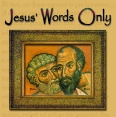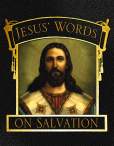Summary of Epicurus
We read in John Mason Good, Olinthus Gregory, Newton Bosworth, Pantologia: A New Cyclopaedia, Comprehending a Complete Series of Essays, Treatises, and Systems, Alphabetically Arranged; with a General Dictionary of Arts, Sciences and Words ... Illustrated with Engravings, Those on History Being from Original Drawings by Edwards and Others (Kearsley, 1813) Vol 4 at 470 the following:"In its mere physical contemplation," says Mr. Good, " the theory of Epicurus allows of nothing but matter and space, which are equally infinite and unbounded, which have equally existed from all eternity, and from different combinations of which every individual being is created. These existences have no property in common with each other; for, whatever matter is, that space is the reverse of; and whatever space is, matter is the contrary to. The actually solid parts of all bodies, therefore, are matter; their actual pores, space, and the parts which are not altogether solid, but an intermixture of solidity and pore, are space and matter combined.Anterior to the formation of the universe, space and matter existed uncombined, or in their pure and elementary state. Space, in its elementary state, is positive and unsolid void: matter, in its elementary state, consists of inconceivably minute seeds or atoms; so small that the corpuscles of vapour, light, and heat, are compounds of them; and so solid that they cannot possibly be broken, or made smaller, by any concussion or violence whatever. The express figure of these primary atoms is various: there are round, square, pointed, jagged, as well as many other shapes. These shapes, however, are not diversified to infinity ; but the atomsthemselves, of each existent shape, are infinite or innumerable. Every atom is possessed of certain intrinsic powers of motion. Under the old school of Democrilus, the perpetual motions exhibited were of two kinds: a descending motion, from its own gravity; and a rebounding motion, from mutual concussion. Besides these two motions, and to explain certain phsenomena which the following poem developes, and which were not accounted for under the old system, Epicurussupposed that some atoms were occasionally possessed of a third, by which, in some very small degrees, they descended in an oblique or curvilinear direction, deviating from the common and right line anomalously; and hence, in this respect, resembling the oscillations of the magnetic needle.
" These infinitudes of atoms, flying immemorially in such different directions, through all the immensity of space, have interchangeably tried and exhibited every possible mode of action; sometimes repelled from each other by concussion, and sometimes adhering to each other from their own jagged or pointed construction, or from the casual interstices which two or more connected atoms must produce, and which may just be adapted to those of other configurations, as globular, oval, or square. Hence the origin of compound bodies; hence the origin of immense masses of matter; hence, eventually, the origin of the world itself. When these primary atomsare closely compacted together, and but little vacuity or space intervenes, they produce those kinds of substances which we denominate solid, as stones, and metals : when they are loose and disjoined, and a large quantity of space or va
cuity occurs between them, they produce the phenomena of wool, water, vapour. In one mode of combination, they form earth; in another, air; and in another, fire. Arranged in one way, they produce vegetation and irritability; in another way, animal life and perception Man hence arises; families are formed ; society multiplies, and governments are instituted.
" The world, thus generated, is perpetually sustained by the application of fresh elementaryatoms, flying with inconceivable rapidity through all the infinitude of space, invisible from their minuteness, and occupying the posts of all those that arc as perpetually flying off. Yet, nothing is eternal and immutable but these elementary seeds or atoms themselves: the compound forms of matter are continually decompounding, and dissolving into their orginal corpuscles: to this there is no exception: minerals, vegetables, and animals, in this respect all alike, when they lose their present configuration, perishing from existence for ever, and new combinations proceeding from the matter into which they dissolve. But the world itself is a compound, though not an organized being; sustained and nourished like organized beings from the material pabulum that floats through the void of infinity. The world itself must therefore, in the same manner, perish: it had a beginning, and it will eventually have an end. Its present crisis will be decompounded; it will return to its original, its elementary atoms; and new worlds will arise from its destruction.
" Space is infinite, material atoms are infinite, but the world is not infinite. This, then, is not the only world, or the only material system that exists. The cause whence this visible system originated is competent to produce others ; it has been acting perpetually from all eternity; and there are other worlds and other systems of worlds existing around us. In the vast immensity of space, there are also other beings than man, possessed of powers of intellect and enjoyment far superior to our own: beings who existed before the formation of the world, and will exist when lire world shall perish for ever; whose happiness flows unlimited, and unallayed; and whom the tumults and passions of gross matter can never agitate. These the founder of the system and endowed alone with finite capacities and powers; but from the uninterrupted beatitude and tranquillity they enjoy, their everlasting freedom from all anxiety and care." denominated gods: not that they created the universe, or are possessed of a power of upholding it; for they are finite and created beings themselves,(Good's Lucretius. I. cviii—cxi.)
Contrast Newton
The modern age of science began with the end of Epicurus' view of nature. Isaac Newton anticipated what the Big Bang would later prove -- that matter was itself created and it was not eternal:
Sir Isaac Newton found these opinions indeed, but he built upon them, and a most noble superstructure has he raised. To him are we indebted for the doctrines of attraction and repulsion, and the laws which govern and regulate the Universe. Matter with him, though primitively consisting of solid impenetrable particles, is not eternal, though apparently indissoluble : it is a created substance, and speaks and proves the existence of an immaterial and intelligent author. (Titus Lucretius Carus, The nature of things: a didactic poem(Ed. John M. Good)(Longman, Hurst, Rees, and Orme, 1805) Vol. 1 at 91.)



